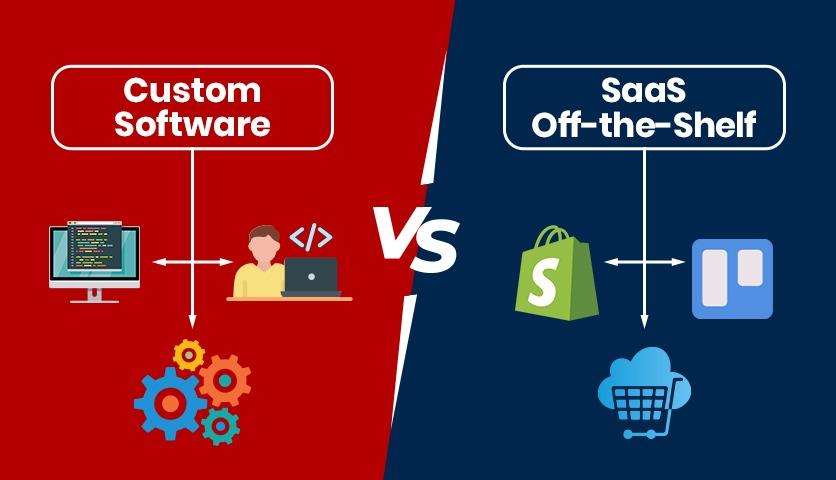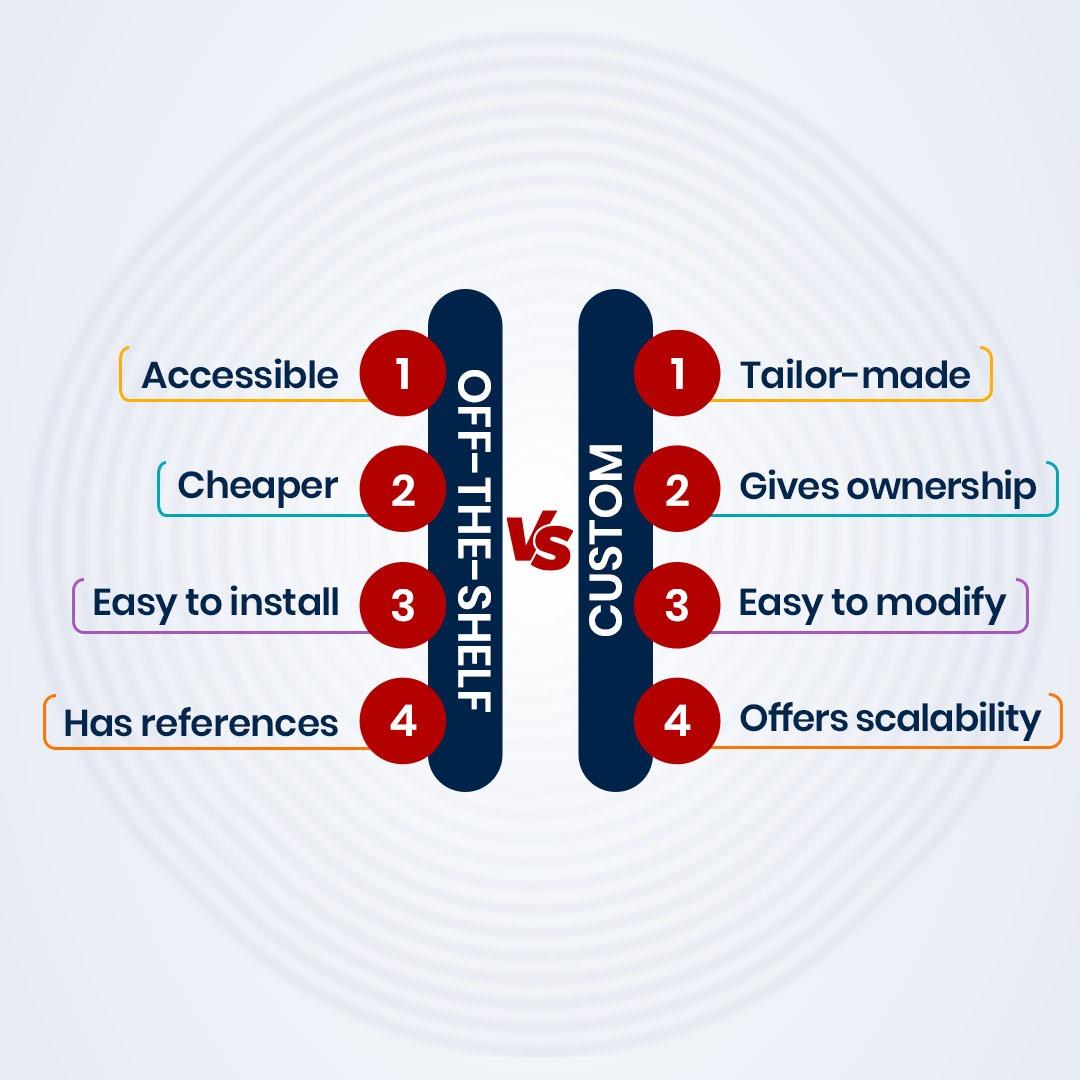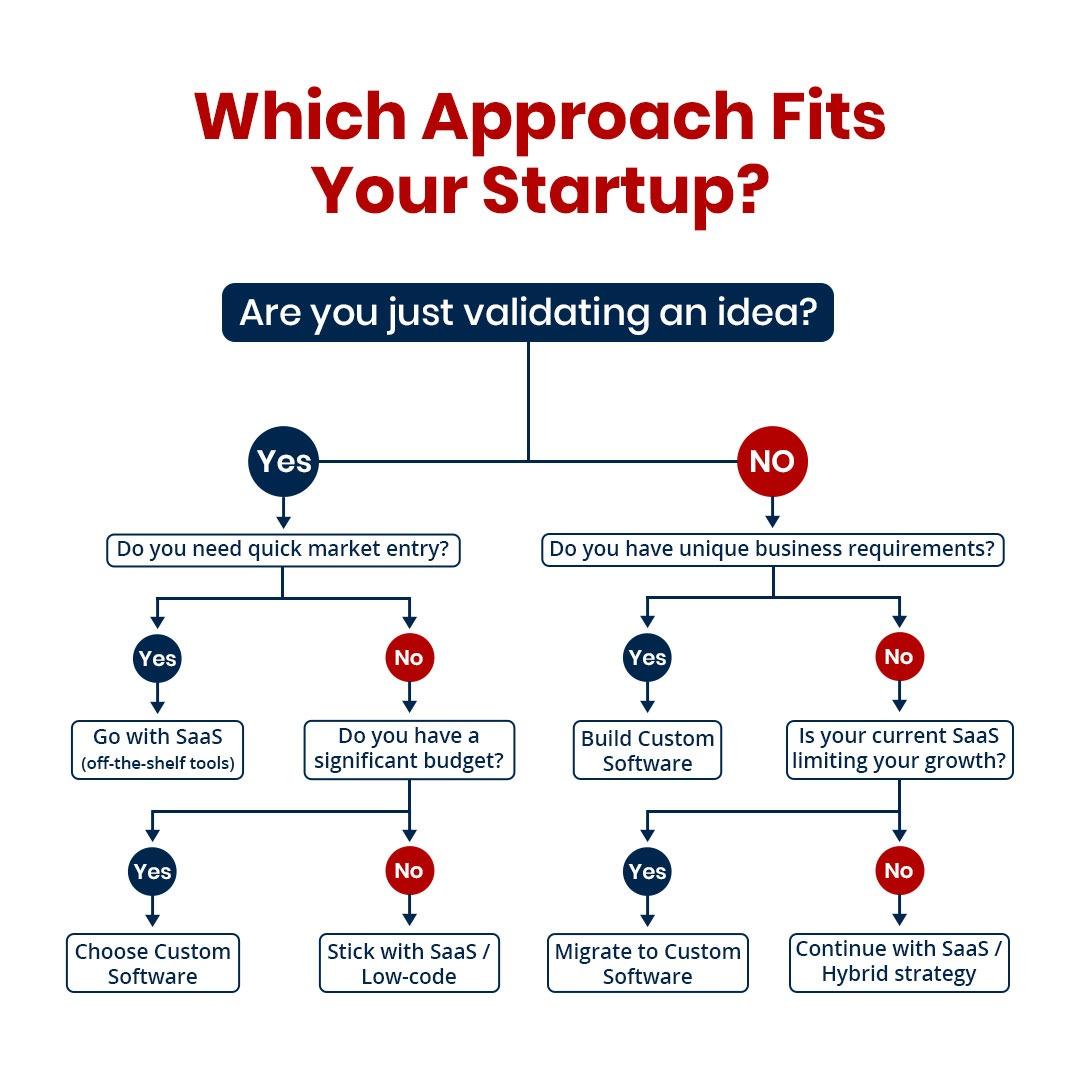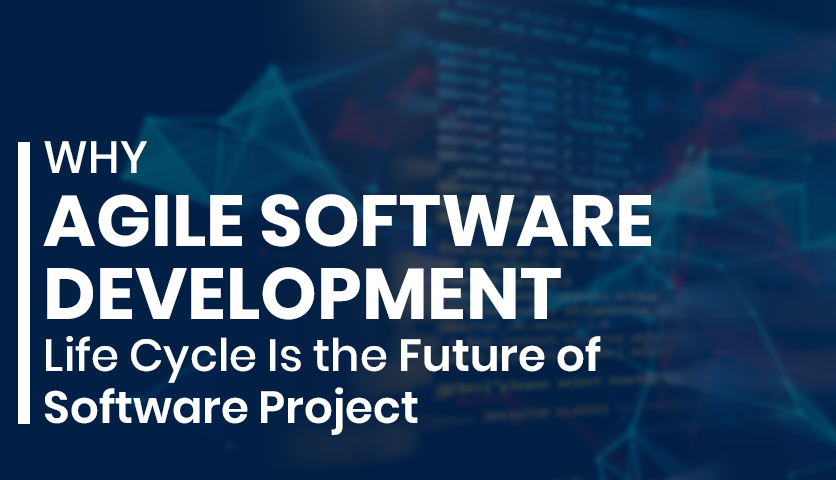
Imagine you’re starting a new business. You need to manage your store, boost online sales, organize your team’s work, and also keep track of customers. Now, do you need to build a brand-new software solution for every single task?
The answer is no – and that’s exactly where off-the-shelf software comes in.
But what is this off-the-shelf software?
What is off-the-shelf software?
Off-the-shelf software refers to pre-made, subscription-based tools that can be used instantly. Think of it as a ready-made meal, you just order and serve instantly. These are also called SaaS solutions (software as a service) or plug-and-play tools. You just sign up, and they start working instantly. These tools are designed for universal business requirements – whether you run a small startup, a growing E-Commerce brand or large business, they help you get started without delay.
Here are some Popular Examples of SaaS:
Shopify – Perfect for online stores and E-Commerce
Trello – For project management.
Salesforce – Manage customers and leads like a pro
Pros of SaaS solutions:
SaaS solutions are becoming more popular in the market. They have many advantages.
1. Fast implementation – Sign up and launch within minutes.
2. Lower upfront cost – Built at a low cost.
3. Proven reliability – Millions of users. Fewer bugs and more reliable features.
Cons of SaaS solutions:
SaaS solutions have many advantages, but they come with some risks.
1. Limited customization – You cannot fully customize it according to your needs.
2. May not fit unique workflows – If you do some unique work, then it may not prove to be very useful for you.
3. Ongoing subscription costs – You have to pay every month/year to continue using it.
4. Vendor lock-in risks – Once you start working on a platform, it is difficult and expensive to change it.
What is custom software development?
Custom software, or bespoke software, refers to a type of software that is completely built according to your business model and specific requirements. Instead of ready-made software, you can consider it as a tailor-made solution.
Where is it used?
It is widely used in fintech platforms (like digital payment or investment apps), in custom CRMs, and in internal automation tools that make company operations easier.
Pros of Custom Software
◆ You get full control over both features and design.
◆ It integrates smoothly with other tools and APIs.
◆ In the long run, it offers better scalability and security.
Cons of Custom Software
◆Development requires more time.
◆The initial investment is higher.
◆It requires technical management.
If you own a startup and want reliable custom app development tailored to your requirements, Autotroph Infotech can be a trusted partner. They provide excellent Customer Software Development Services.
Startup Software Development Trends in 2025
In Startup Software Development, new trends come every year. Now it’s not only focused on building products quickly but also emphasizes scalability, security, and innovation.
Here are some such startup software development trends in 2025 that will change the startup ecosystem in the coming time.
1. SaaS + low-code hybrid adoption
In 2025, the trend of hybrid software is increasing. Startups are now using a combined form of software as a service and low code more.
2. AI+ Automation feature
SaaS tools have now also included the features of artificial intelligence and automation.
3. Focus on security and compliance
Startups are creating their own custom apps.
The main objective of these apps is unique IP so that investors have trust and the company’s values become strong.
Custom Software vs Off-the-Shelf: Cost, Time, & Flexibility Compared

When looking for software for any startup or business, three things are most important: cost, time, and flexibility. These things decide whether you should buy off-the-shelf SaaS or custom software.
| Factor | Off-the-Shelf SaaS | Custom Software |
|---|---|---|
| Cost | Low upfront : monthly/yearly subscription fees. | High initial investment : cost grows with complexity. |
| Time to Launch | Launch in days or weeks. | Development takes weeks to months. |
| Flexibility | Limited customization; restricted to vendor’s features. | Fully customizable to match unique workflows and vision. |
| Scalability | Good for small teams and MVPs,may hit limits at scale. | Built to scale with growth, funding, and investors. |
| Future-Proofing | Vendor-controlled, risk if SaaS shuts down. | Full ownership, long-term adaptability, more control. |
| Security & Compliance | Standard vendor policies; limited control. | Tailored security, compliance with industry standards. |
That means, if you want to enter the market quickly, go with SaaS. However if you’re planning with a long-term vision, choose custom software.
For businesses looking for a balance between cost and innovation, Autotroph Infotech offers a hybrid MVP strategy for bootstrapped startups – launching first with SaaS tools to validate the idea, then gradually building a custom platform for long-term growth.
Which Approach Is Right for Your Startup?
Which software approach will be right is the biggest challenge for startups. Should one start with SaaS? Or invest directly in custom software? The answer depends on the need and stage of the startup.
Key questions to ask yourself
Before starting, ask yourself a few questions. Like:
➛Are you validating an idea or scaling one?
➛Is time-to-market or long-term control more critical?
➛Do you need to pitch investors with unique IP?
➛What’s your budget for the first 6–12 months?
Use case scenarios:
1. Early-stage, pre-revenue startup → Start with SaaS or low-code
Imagine you just have an idea of a startup but no revenue yet. At this stage speed matters for you more than anything. SaaS tools or low-code platforms like Bubble help you launch fast and try it.
2. Funded startup with a unique model → Invest in custom software
If you already have funding and your business model is innovative, you should invest directly in custom software. It gives you Unique IP. Long-lasting business and full control.
3. Growth-stage business with scaling pain → Migrate from SaaS to custom.
If your business is growing, but difficult to scale with SaaS tools, then you should migrate from SaaS to custom software. Custom software reduces technical limitations, and supports sustainable growth.
Read Also – The Power of CRM Software for Business Growth
Hybrid Approaches and MVP Strategy
The biggest challenge for startups is entering the market quickly while also needing long-term, future-proof software. This is where the hybrid software approach works.
By using a hybrid software approach, you can quickly prepare a minimum viable product by using SaaS tools or open-source solutions.
As your business grows, you can add custom modules on a SaaS basis, especially where you need unique features.
➮ Fast launch, scalable, future-ready product.
Role of a Low-Code Platform
These platforms are especially useful for startups with a limited budget and small team. For example: A small e-learning startup launched its MVP on Bubble in just three weeks.
Autotroph Infotech provides step-by-step support to startups:
◆ Hybrid MVP development – Creating a fast and cost-effective MVP by combining SaaS plus custom modules.
◆ Low-code consulting – Proper guidance and setup on low-code platforms like Bubble, OutSystems.
◆ Transition planning – Migration strategy from off-the-shelf to full-stack custom software.
Consider hybrid as the best of both worlds: quick SaaS tools today, future-proof custom modules tomorrow.
Recently Published Blog – How Agile Software Development Life Cycle Is Shaping Software Projects
Conclusion – Build with the Future in Mind
Choosing software for a startup isn’t a black-and-white decision – you just need to decide whether you want fast entry now or a future-proof system. SaaS (off-the-shelf software) is cheap, fast, and immediately usable, but has limits on customization and scalability. Custom software is built exactly as per your needs, is powerful and future-proof, but requires more time and investment. Ultimately, software selection depends on your vision, budget, and product life-cycle stage.
Talk to Autotroph Infotech for a free consultation on your startup’s ideal software roadmap.



